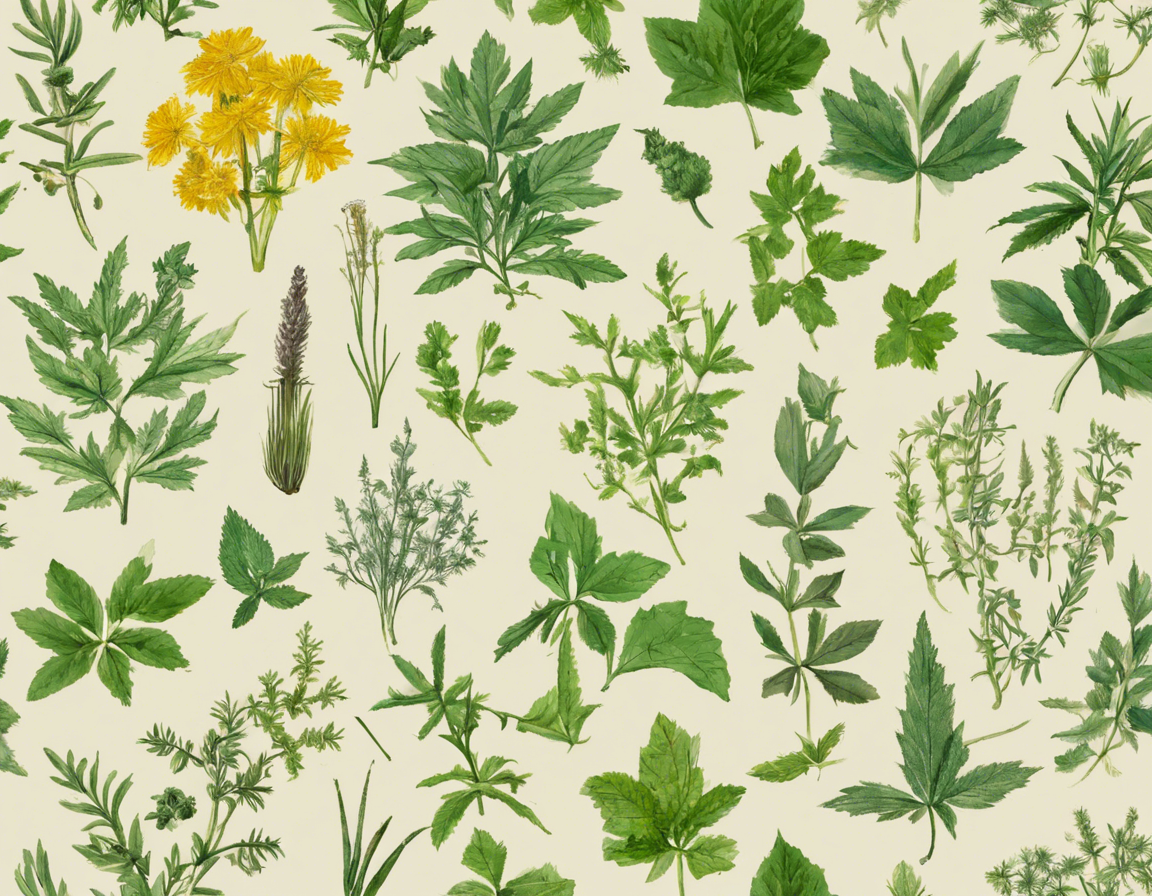Whether it’s seeking a natural solution to a health issue or embracing a more holistic approach to well-being, nature’s herbs have long been revered for their potent medicinal properties. From ancient civilizations to modern science, the power of herbs in promoting health and treating ailments has been well-documented. In this article, we will delve into the world of nature’s herbs, exploring their history, benefits, and practical applications in today’s world.
The History of Herbs
Herbs have been used for medicinal purposes for thousands of years, with evidence dating back to ancient civilizations such as the Egyptians, Greeks, and Chinese. These cultures recognized the healing properties of plants and incorporated them into various remedies and rituals. In medieval Europe, herbalism flourished, with monks and herbalists cultivating gardens of medicinal herbs to treat a wide range of ailments. Today, herbal medicine continues to be an integral part of traditional healing practices in many cultures around the world.
Understanding the Benefits of Herbs
Herbs contain a myriad of compounds that contribute to their therapeutic effects. From anti-inflammatory and antimicrobial properties to antioxidants and essential nutrients, herbs offer a holistic approach to health and well-being. Adaptogenic herbs, such as ashwagandha and ginseng, help the body adapt to stress and support overall resilience. Digestive herbs like ginger and peppermint aid in digestion and soothe gastrointestinal issues. Immune-boosting herbs such as echinacea and elderberry help strengthen the body’s natural defenses.
Incorporating Herbs into Daily Life
There are numerous ways to incorporate herbs into your daily routine to reap their benefits. Herbal teas are a popular and soothing way to enjoy the medicinal properties of herbs. From calming chamomile to invigorating peppermint, there is a tea for every need. Herbal supplements in the form of capsules, tinctures, or powders offer a convenient way to access concentrated doses of herbal extracts. Cooking with herbs not only enhances the flavor of dishes but also provides a nutritional boost. Fresh or dried herbs can be added to soups, salads, marinades, and more.
Common Herbs and Their Uses
- Turmeric: Known for its anti-inflammatory and antioxidant properties, turmeric is often used to support joint health and relieve pain.
- Lavender: With its calming and relaxing scent, lavender is commonly used in aromatherapy to promote relaxation and improve sleep.
- Garlic: A powerful antimicrobial herb, garlic is used to support the immune system and promote heart health.
- Peppermint: This refreshing herb can help soothe digestive issues such as bloating, indigestion, and gas.
- Ginger: Known for its anti-nausea and anti-inflammatory effects, ginger is often used to alleviate gastrointestinal discomfort and nausea.
Herbal Remedies for Common Ailments
- Insomnia: Valerian root and passionflower are known for their sedative properties and can help promote a restful night’s sleep.
- Stress and Anxiety: Holy basil and lemon balm are adaptogenic herbs that can help the body cope with stress and promote relaxation.
- Immune Support: Echinacea and elderberry are popular choices for boosting the immune system and fighting off colds and flu.
- Digestive Issues: Peppermint and ginger can help alleviate symptoms of indigestion, bloating, and nausea.
Frequently Asked Questions (FAQs)
Q: Are herbs safe to use?
A: When used appropriately and in moderation, herbs are generally safe for most people. However, it is important to consult with a healthcare provider, especially if you are pregnant, nursing, or taking medications.
Q: Can herbs interact with medications?
A: Yes, some herbs can interact with medications, either enhancing or reducing their effects. It is recommended to consult with a healthcare professional before using herbs if you are taking any medications.
Q: How can I grow my own herb garden?
A: Growing your own herb garden is a rewarding experience. Herbs like basil, mint, rosemary, and thyme are easy to grow indoors or outdoors in containers. Ensure they receive adequate sunlight and water regularly.
Q: What is the difference between fresh and dried herbs?
A: Fresh herbs have a more vibrant flavor but a shorter shelf life, while dried herbs are more concentrated and convenient for storage. Both can be used in cooking and herbal remedies.
Q: How long does it take to see the effects of herbal remedies?
A: The effects of herbal remedies can vary depending on the individual, the type of herb, and the condition being treated. Some herbs may offer immediate relief, while others may require consistent use over time to see noticeable benefits.
In conclusion, the power of nature’s herbs is undeniable, offering a treasure trove of health benefits for mind, body, and spirit. By understanding the history, benefits, and practical applications of herbs, we can harness their therapeutic properties to support our well-being in a natural and holistic way. Whether enjoying a cup of herbal tea before bed or adding fresh herbs to a home-cooked meal, incorporating herbs into our daily lives can be a simple yet transformative way to nurture our health.

